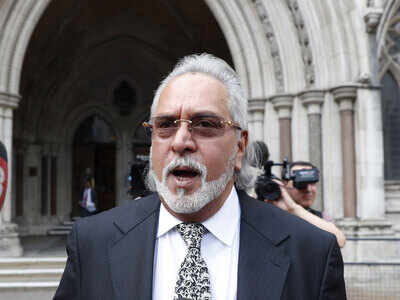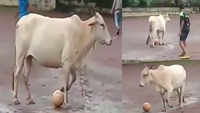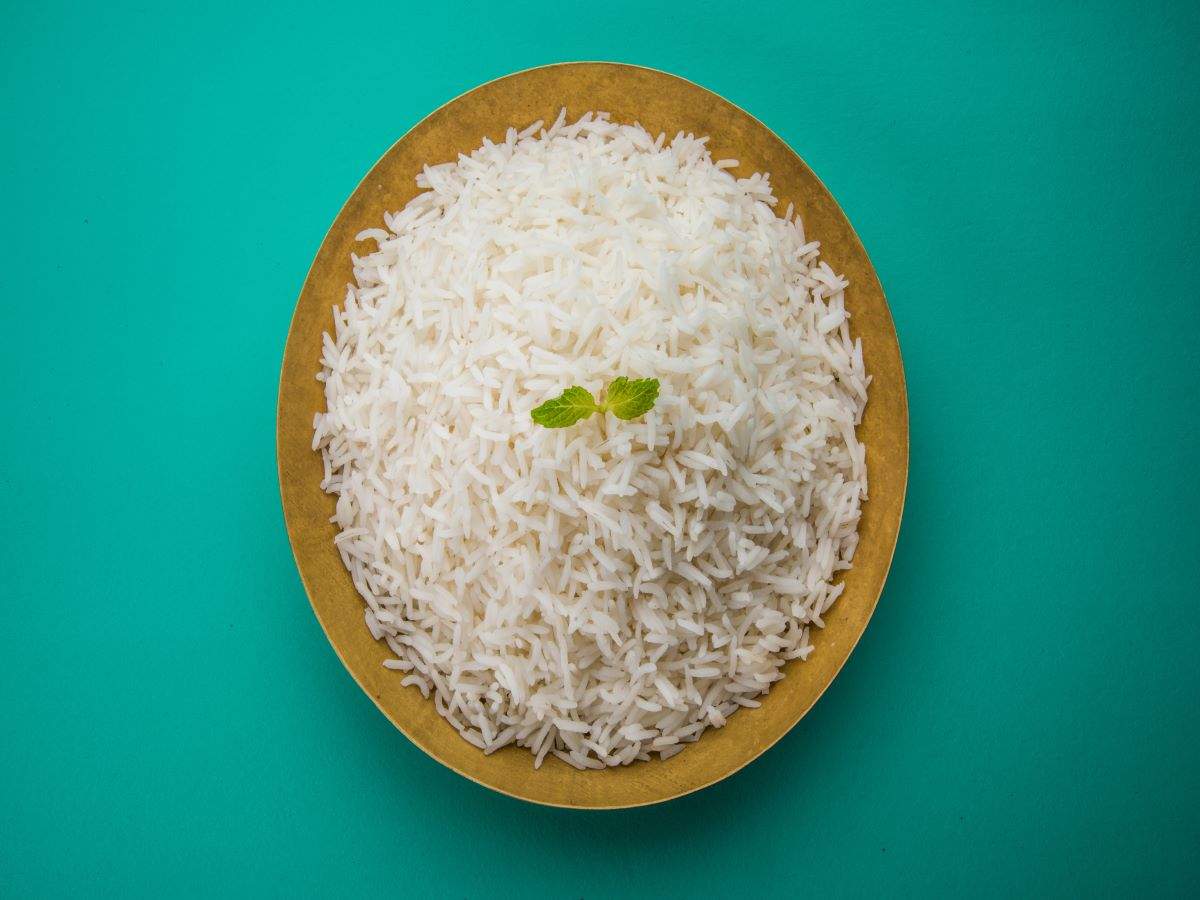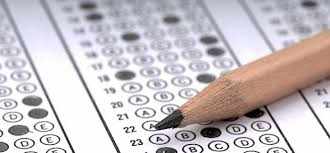
Highlights
LONDON: The London high court ruled on Tuesday that fugitive tycoon Vijay Mallya may appeal against his extradition to India on his argument that no prima facie case is made out against him. The ruling will be seen as a major blow to the Indian investigating authorities.
The decision followed a four-hour hearing at which Clare Montgomery QC, extradition barrister for Mallya, argued that there had been a series of faults with the decision by chief magistrate Emma Arbuthnot in December 2018 to send his case to the home secretary and that Sajid Javid had failed in his duty to check that Mallya would not be dealt with for different offences other than the ones he was being extradited for once in India. The Indian government made written submissions to the court but did not have a barrister in court.
Montgomery put forward five grounds upon which she wanted leave to appeal, the first of which was that there was no prima facie case to answer. Justice George Leggatt, who presided over the case with Justice Andrew Popplewell, granted Mallya permission on Tuesday to appeal on the prima facie grounds, but rejected the other grounds.
The other grounds were that prison conditions in India were inhuman, that the charges against Mallya were politically motivated, that he would not receive a fair trial in India and that he might be dealt with in India for other offences, beyond the ones he was being extradited for. The court heard that Mallya was facing more than 40 criminal cases in India, in some of which warrants had been issued for his arrest.
Extradition barrister Malcolm Hawkes, of Doughty Street Chambers, said: “The fact he has been granted permission to appeal on the prima facie case is quite interesting as that is the bedrock of the case. There is quite a low threshold the government of India has to reach to persuade the British court there is a case to answer in India, so this suggests to me that government of India evidence is either weak or inadmissible.”
Now that Mallya has been granted leave to appeal, a full hearing is expected to be listed at the high court in about four to six months. If Mallya wins that, he will be discharged. If he loses, he could still try to appeal in the Supreme Court if he can persuade the court there is a point of law of general public importance in his case. A Supreme Court hearing would likely take at least one year after the high court hearing.
If Mallya wins his appeal in the high court, it would be open to the Indian government to try to appeal that decision in the Supreme Court, again having to meet the test of identifying a point of law of general public importance.
Walking out of court Mallya, who was beaming, said: “The senior judges have decided that the prima facie case of the chief magistrate is appealable and I always said these were false charges against me with fake evidence. I am glad I won on the prima facie case. That deals with the government’s charges against me and that means the most to me. Where is the question of fraud? As far as what Kingfisher owes to the banks, I have offered to pay it all back. Now the unthinkable has happened. Jet has collapsed. Who would have thought this would happen? That is the fragile state of aviation in India. The government needs to do something about that. It is unfair that if a business fails, the promoter is accused of fraud almost automatically these days. That is not right,” he said as he lit up a cigar. His son, Siddharth, and girlfriend Pinky, were by his side.
In order to send Mallya’s extradition order to Javid, chief magistrate Emma Arbuthnot had to determine there was sufficient evidence available to make a case to answer in India. In her judgment she had said the Indian government had established a prima facie case.
The Indian government wants to extradite Mallya, former chief executive of Kingfisher Airlines and chairman of UB Group, to India, to face charges of criminal conspiracy and cheating in relation to three loans made by IDBI Bank to Kingfisher Airlines in 2009. The Indian government claims Mallya, in connivance with Kingfisher executives and banking officials, obtained the loans fraudulently by making misrepresentations about the profitability of the airline, and the value of and availability of securities, intending to make gains for himself and expose the bank to losses, and that Mallya then proceeded to launder the money.
Reading out the judgment on granting leave to appeal, Justice Leggatt said: “We have decided that the appellant’s first grounds of appeal is at least reasonably arguable. The district judge found a prima facie case of fraud and misrepresentation but it is argued that many of these alleged misrepresentations she has found in her judgment are not the same ones alleged in the extradition request nor have they even been alleged by the government of India at the extradition hearing so they are not part of the case. The district judge’s findings are either based on a misunderstanding or misreading of the evidence, or inconsistent with the evidence, or they have no bearing on the evidence. The district judge wrongly relied on material not admissible as evidence as well. The district judge also did not give any proper consideration to the possibility that bank officials who approved the loans genuinely believed that the applicant and Kingfisher executives intended to ensure the loans were repaid and believed there was a sufficient likelihood of repayment to justify the lending. We are satisfied there are arguments that can reasonably be made and that justify giving permission to appeal at this court.”
The decision followed a four-hour hearing at which Clare Montgomery QC, extradition barrister for Mallya, argued that there had been a series of faults with the decision by chief magistrate Emma Arbuthnot in December 2018 to send his case to the home secretary and that Sajid Javid had failed in his duty to check that Mallya would not be dealt with for different offences other than the ones he was being extradited for once in India. The Indian government made written submissions to the court but did not have a barrister in court.
Montgomery put forward five grounds upon which she wanted leave to appeal, the first of which was that there was no prima facie case to answer. Justice George Leggatt, who presided over the case with Justice Andrew Popplewell, granted Mallya permission on Tuesday to appeal on the prima facie grounds, but rejected the other grounds.
The other grounds were that prison conditions in India were inhuman, that the charges against Mallya were politically motivated, that he would not receive a fair trial in India and that he might be dealt with in India for other offences, beyond the ones he was being extradited for. The court heard that Mallya was facing more than 40 criminal cases in India, in some of which warrants had been issued for his arrest.
Extradition barrister Malcolm Hawkes, of Doughty Street Chambers, said: “The fact he has been granted permission to appeal on the prima facie case is quite interesting as that is the bedrock of the case. There is quite a low threshold the government of India has to reach to persuade the British court there is a case to answer in India, so this suggests to me that government of India evidence is either weak or inadmissible.”
Now that Mallya has been granted leave to appeal, a full hearing is expected to be listed at the high court in about four to six months. If Mallya wins that, he will be discharged. If he loses, he could still try to appeal in the Supreme Court if he can persuade the court there is a point of law of general public importance in his case. A Supreme Court hearing would likely take at least one year after the high court hearing.
If Mallya wins his appeal in the high court, it would be open to the Indian government to try to appeal that decision in the Supreme Court, again having to meet the test of identifying a point of law of general public importance.
Walking out of court Mallya, who was beaming, said: “The senior judges have decided that the prima facie case of the chief magistrate is appealable and I always said these were false charges against me with fake evidence. I am glad I won on the prima facie case. That deals with the government’s charges against me and that means the most to me. Where is the question of fraud? As far as what Kingfisher owes to the banks, I have offered to pay it all back. Now the unthinkable has happened. Jet has collapsed. Who would have thought this would happen? That is the fragile state of aviation in India. The government needs to do something about that. It is unfair that if a business fails, the promoter is accused of fraud almost automatically these days. That is not right,” he said as he lit up a cigar. His son, Siddharth, and girlfriend Pinky, were by his side.
In order to send Mallya’s extradition order to Javid, chief magistrate Emma Arbuthnot had to determine there was sufficient evidence available to make a case to answer in India. In her judgment she had said the Indian government had established a prima facie case.
The Indian government wants to extradite Mallya, former chief executive of Kingfisher Airlines and chairman of UB Group, to India, to face charges of criminal conspiracy and cheating in relation to three loans made by IDBI Bank to Kingfisher Airlines in 2009. The Indian government claims Mallya, in connivance with Kingfisher executives and banking officials, obtained the loans fraudulently by making misrepresentations about the profitability of the airline, and the value of and availability of securities, intending to make gains for himself and expose the bank to losses, and that Mallya then proceeded to launder the money.
Reading out the judgment on granting leave to appeal, Justice Leggatt said: “We have decided that the appellant’s first grounds of appeal is at least reasonably arguable. The district judge found a prima facie case of fraud and misrepresentation but it is argued that many of these alleged misrepresentations she has found in her judgment are not the same ones alleged in the extradition request nor have they even been alleged by the government of India at the extradition hearing so they are not part of the case. The district judge’s findings are either based on a misunderstanding or misreading of the evidence, or inconsistent with the evidence, or they have no bearing on the evidence. The district judge wrongly relied on material not admissible as evidence as well. The district judge also did not give any proper consideration to the possibility that bank officials who approved the loans genuinely believed that the applicant and Kingfisher executives intended to ensure the loans were repaid and believed there was a sufficient likelihood of repayment to justify the lending. We are satisfied there are arguments that can reasonably be made and that justify giving permission to appeal at this court.”
Download The Times of India News App for Latest World News.
more from times of india news
World Cup 2019
Trending Topics
LATEST VIDEOS
More from TOI
Navbharat Times
Featured Today in Travel
Get the app









